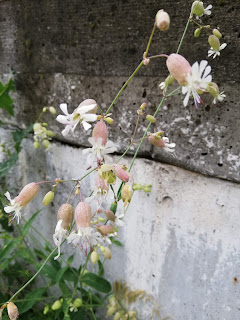Compassion is governed by wisdom.
But the 4NT say that to end our suffering we do not attach to desire. This means we do not attach to compassion, and yet the path is the path of compassion. This appears to be a difficult contradiction – developing compassion yet not attaching to it, but it means we have to accept the way the world is.
This anomaly of compassion and suffering seems a very unfeeling approach. The path develops compassion, and yet we have to learn to accept the way the world is – with all its suffering; increased compassion would appear to make this acceptance harder. But the path provides the answer to this dilemma, and that is the path itself.
When we follow our path we do what we are meant to do, and that satisfies compassion. Following our paths is enough, that is important – following our paths is enough.
For me compassion is the motivation to write and teach, they are and were my paths. When we feel for the suffering in the world, we use that feeling to motivate us to follow our paths. If we choose to attach to the emotion our path of compassion creates we just suffer – we create suffering within us. To end the personal suffering that comes from compassion, we have to learn to use our compassion to follow the path.
I talk of taking mindful moments if emotion arises. If we look at the world now with its increasing suffering then we take a mindful moment to recognise that our duty is to follow our path, in that moment we can decide what to do. If this strategy doesn't work, then find a place in nature where you can observe and reflect; nature will usually help.
There is a danger with compassion that is called spiritual bypassing. In spiritual bypassing, by following our paths (spirit) we develop meditation so that we can detach ourselves from the suffering in the world. In other words in spiritual bypassing we do not engage with the world. But I take the opposite view, I recommend 100% engagement with the world.
So 100% engagement produces desire, and if we attach to the desire we create suffering for ourselves. But again the path provides our solution. It is our natural duty to follow our paths (that is why nature gave us our paths), and when we follow our paths we are doing the best we can; this minimises personal suffering. 100% engagement means 100% dedication to our paths, but 100% dedication brings with it the benefits of the path. Our compassion doesn’t attach to the desire to free the world from suffering, compassion motivates us to follow our paths doing the best we can - being authentic.
In this way there is no anomaly. The path develops compassion but that compassion does not increase personal suffering. It is OK to say that you are angry with aspects of this world that are defiled, because when you feel that anger arise you don’t attach to it, but use it to motivate you to follow your path - letting go of the anger. This is sampajanna, wise action in daily life, one of the 4 Dhamma Comrades that develop from MwB.
Our compassion must accept the way it is because if we don’t see the way it is we might look at the suffering and see that it is something we desire to change. The fact that there is suffering throughout the world cannot be changed by us individually, that understanding is the first Noble Truth; we can only do the best we can. And that best is to follow our paths.
Follow your path, return to compassion losing the egos of conditioning without getting sucked into the attachments.


Comentarii